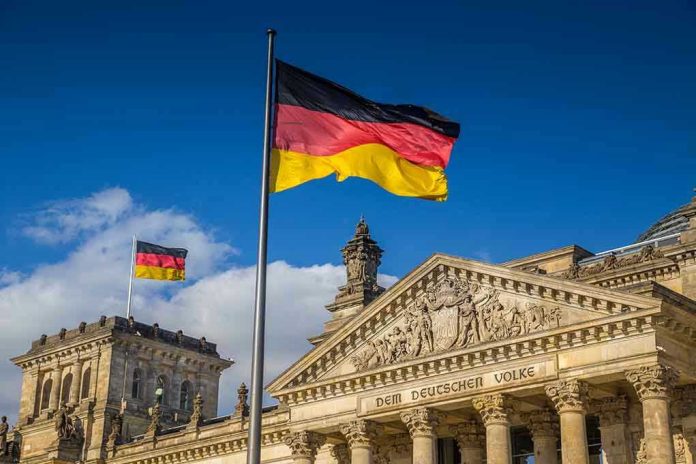
Six deaths of right-wing AfD candidates within 13 days before Germany’s local elections have triggered alarm over political violence, candidate safety, and the integrity of the election process.
Story Snapshot
- Six Alternative for Germany (AfD) candidates died over a 13-day period before German local elections, raising concerns of political targeting or systemic threats.
- The deaths occurred amid intense polarization and ongoing legal scrutiny of the AfD, which has recently surged in electoral strength.
- Authorities report mixed causes and stress that no evidence of coordinated foul play has been found as investigations continue.
- The incident has fueled debate about democracy, extremism, and the safety of controversial political actors in modern Germany.
Cluster of Candidate Deaths Heightens Tensions Before German Elections
Six candidates representing the right-wing Alternative for Germany (AfD) party died in rapid succession during the final two weeks leading up to local elections in early September 2025. This unprecedented pattern of fatalities among members of a single political party, especially one as controversial and polarizing as the AfD, has drawn national and international attention. The deaths, first reported in late August and clustered within a 13-day period, have prompted speculation about their causes and potential links, with authorities, media, and the public demanding transparent answers.
The AfD’s rise to prominence has been marked by its strong opposition to mass immigration, globalism, and what it describes as leftist overreach—positions that have resonated with many conservative voters but also made the party a lightning rod for criticism and heightened scrutiny. Founded in 2013 as a Eurosceptic party, the AfD evolved rapidly after the 2015 refugee crisis, championing strict anti-immigration policies and traditional values. Its electoral strength has grown, with the party finishing second in national races and consolidating its position as a major opposition force in 2025.
Investigations Underway Amid Calls for Transparency and Security
Law enforcement agencies in Germany have launched thorough investigations into the deaths, conducting autopsies and reviewing possible connections between the cases. Early statements from authorities suggest a mix of causes, with no official confirmation of foul play or coordinated attacks at this stage. Party leadership has demanded heightened protection for candidates and full transparency from investigators to dispel rumors of political targeting. Other political parties and the broader public have echoed calls for calm and accountability, mindful of the intense polarization and potential for unrest if the integrity of the election is seen as compromised.
Historically, while threats and isolated attacks against politicians have occurred in Germany, there is no recent precedent for such a concentrated series of deaths among representatives of a single party. The context is especially fraught given that the AfD, often challenged for its outspoken nationalist rhetoric and accused extremism, is simultaneously under legal investigation and gaining ground at the polls. These developments underscore the complex power dynamics at play, with the AfD positioned both as a challenger to the establishment and a subject of state scrutiny.
Broader Implications for Political Safety and Democratic Trust
The immediate aftermath of these deaths has seen a surge in security concerns for political candidates across Germany, particularly those affiliated with controversial parties. The incidents are expected to impact voter turnout and election outcomes, as fear and uncertainty may discourage participation or sway public opinion. In the longer term, experts anticipate a reevaluation of candidate protection protocols and ongoing debate about political violence, extremism, and the health of democratic institutions. Analysts warn that the clustering of such events, even absent evidence of coordination, can fuel conspiracy theories and deepen societal mistrust, especially in an already polarized environment.
Commentators and scholars agree that the AfD’s distinct role as both disruptor and target in German politics exacerbates the volatility of the situation. While some urge restraint in drawing conclusions before investigations are complete, others see these events as a stark reminder of the risks faced by those who challenge the status quo in contentious times. As investigations progress, the ability of authorities and political leaders to maintain transparency, ensure safety, and uphold democratic norms will be tested, with implications that reach beyond Germany’s borders.
Sources:
Wikipedia: Alternative for Germany
Britannica: Alternative for Germany
American-German Institute: Understanding the AfD
International Centre for Counter-Terrorism: AfD’s Extremist Turn
Indian Council of World Affairs: AfD’s Agenda and Implications



